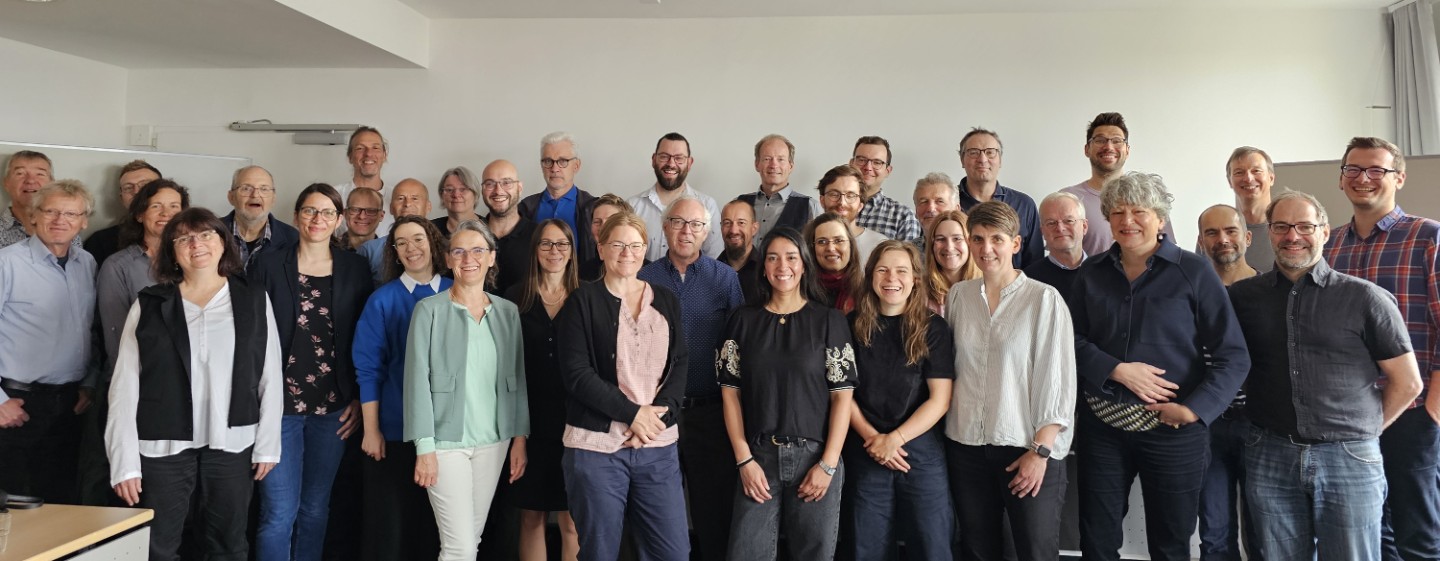Around 59 percent of all biodiversity on Earth is found in the soil, but our knowledge of soil biodiversity across different land-use types and its drivers is limited. Recent publications, among them the ‘Faktencheck Artenvielfalt’, highlighted the lack and need of a standardised systematic monitoring of soil biodiversity and their functions in Germany. In order to address this gap in knowledge, the German Environment Agency (UBA), together with the Fraunhofer Society (project lead) and ten other institutions (Fig 1), among them iDiv and Leipzig University, is launching a long-term research programme on soil biodiversity in Germany and the functions it provides. The programme received around 20 Mio € in funding from the Federal Ministry for the Environment’s Federal Action Plan on Nature (ANK).
Figure 1: Members of the BioDive4Soil team and scientific advisory board at the kick-off meeting in Berlin in June 2025
The aims of BioDive4Soil are to identify habitat-specific soil biota communities, analyse environmental and anthropogenic drivers, as well as develop biological soil health indicators. Approximately, 1.5 Mio € is allocated for work that will be done at iDiv: We will measure soil microbial biomass and activity, carbon and nitrogen content, as well as soil aggregate stability. I will further contribute to the design of the monitoring, the data analysis, and lead the scientific exchange with other national monitoring programs as well as the synthesis and development of measures for the sustainable management of soils in Germany.
In the coming years, there will likely be opportunities to explore synergies with colleagues at iDiv or strategic and synthesis projects, such as Soils4Anthropocene, sOilfauna, sMacros, or other monitoring initiatives. If you would like to learn more, please feel free to get in touch.
Contact: christian.ristok@idiv.de
Further reading:
https://www.umweltbundesamt.de/en/press/pressinformation/how-much-life-lies-within-our-soil
